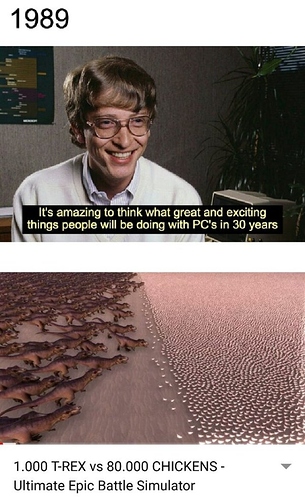My son was asking what I’ve been doing in quarantine, and I told him I’ve been listening to a lot of great new music. So then I thought, how come?
Of course it’s partially because I have time on my hands.
But it is also because of the wondrous synergy between Roon’s Recommended For You suggestion and the Long Tail effect of the internet. These come together to create recommendations that perfectly suit my unique interests.
Roon’s recommendations are driven by the Vālence engine, as @Mike described in the 1.7 Release Notes:
Vālence is based on machine learning, and like all such systems it gets smarter the more data it has to work with and the more learning it can do. This is one of the counterintuitive lessons of recent years: it is easier to find something on the vast internet than on your own hard drive (or in your own desk drawer).
Provided, of course, that the system is well designed. Everybody with a service wants to do recommendations, good business value in that, but some recommendation systems are pretty dumb. I don’t need a recommendation system to point me to Taylor Swift’s latest, that’s ubiquitous mainstream, no personalized appeal at all. And on the other side, YouTube personalizes in the most simplistic way: somebody sends me a link to a story about some interesting engineering choices in WW II German aircraft (upside-down V12 engines) and Youtube decides I’m a military historian and floods my feed with stories about old military aircraft and tanks. And don’t even think about watching pets and babies…
I don’t know any details about how Vālence works, but it is apparent that it is able to learn from my experience and place that in a context (derived from the experiences of the entire community) that lets it understand what I would like and make interesting suggestions, related to what I like but just peripheral enough to be valuable. (Plus Roon knows what I have so it can suggest new things: Amazon’s recommendation engine is quite smart, but it doesn’t know what I have so I already have over half of the recommendations.)
But the recommendations would be of limited value without the Long Tail effect of the internet: the streaming services have 68 gazillion albums, and they go quite far into the niche underbrush. Compare this with the days of going into Tower Records: there is a lot of romanticism of flipping through the drawers of vinyl in a record store, but if your interest went beyond the 2,000 mainstream albums they had in stock there was little opportunity for discovery.
So Roon can learn from a vast amount of information, but can also make recommendations from a vast catalog. And it costs me nothing, on the margin, to try the recommendations out, and to keep the albums I like (the majority).
There has been a lot written by starry-eyed technology evangelists (like me, I admit it) about the power of the internet to expand cultural diversity, because of the zero marginal cost which enables long-tail supply and discovery. But we also see the opposite effect, with the big names of mass appeal leading to a compression of diversity. This is profoundly depressing: Taylor Swift and Beyoncé dominate even more today than they could in the old world. This tension between expansion and compression of diversity, in culture and ideas and insights, is one of the most interesting aspects of our tech-powered world, simultaneously exciting and depressing.
But it remains possible to revel in the expansion of diversity while shunning the compression, to enjoy and learn from the long tail, with the help of an intelligent guide.
This is Roon’s main contribution in my current life. It isn’t just about finding albums I have, or searching for albums I know. It is about being taken on a journey into a world of music, and I know it is expanding faster than I can explore, the horizon is forever receding.

